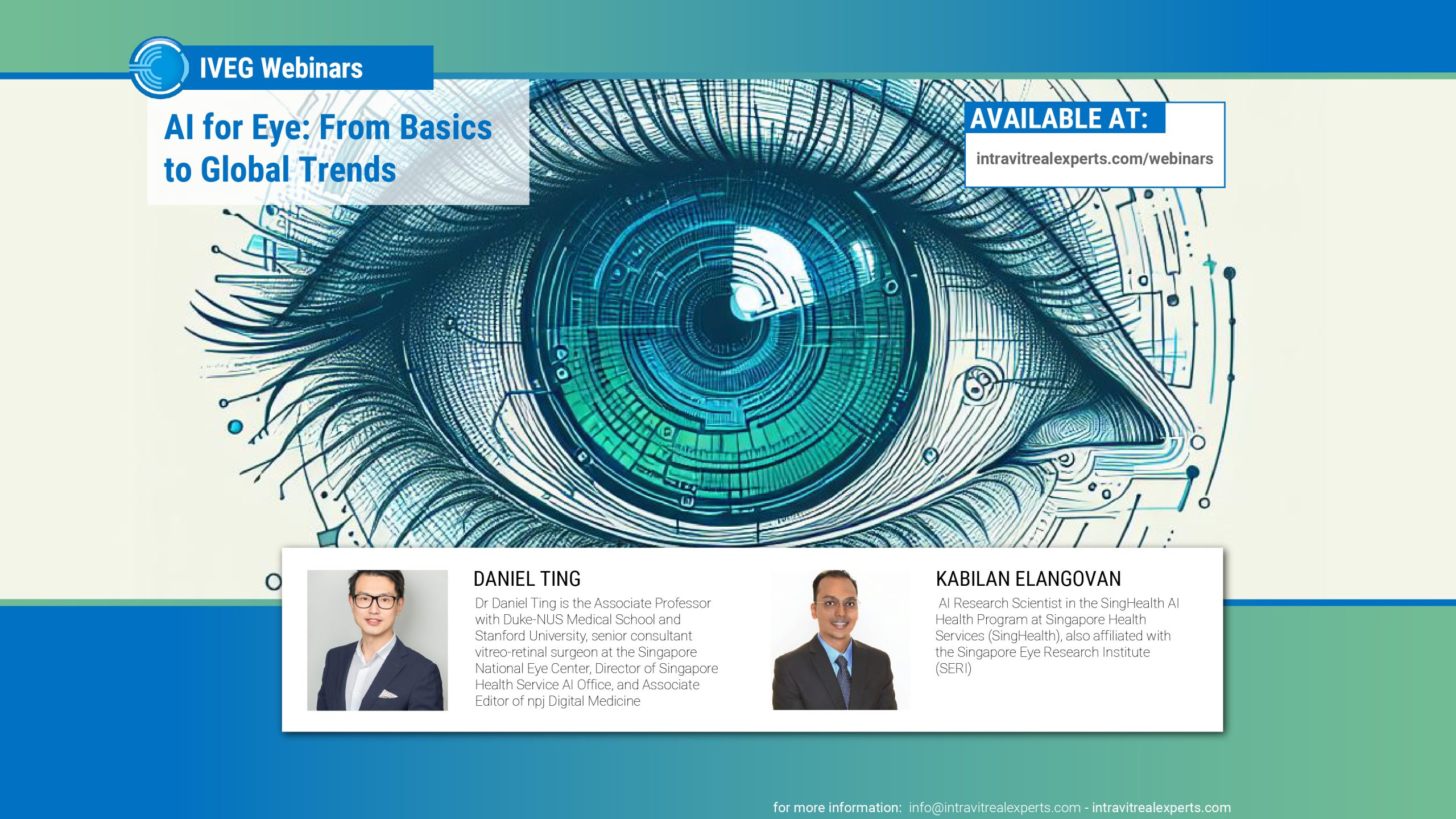IVEG Webinars – AI for Eye: From Basics to Global Trends

Basic principles of Artificial Intelligence
In this first part of our online course you will learn about the evolution of artificial intelligence, the difference between Artificial Intelligence (AI), Machine Learning (ML) and Deep Learning, the capabilities of Deep Learning, the further leap forward towards Generative Learning, and the applications of AI in healthcare, shaping the future of medicine.


“AI for Eye: From Basics to Global Trends” offers an insightful overview into how Artificial Intelligence (AI), Machine Learning (ML), and Deep Learning (DL) technologies are being applied in ophthalmology. First, introducing the fundamentals of AI, ML, and DL, ensuring a solid grasp of these key technologies. It then shifts focus to examine the latest global trends in ophthalmology influenced by AI, highlighting innovative approaches to eye care. Designed for healthcare professionals and tech enthusiasts alike, this course provides a clear perspective on the evolving role of AI in enhancing ophthalmic diagnosis and treatment.
Daniel Ting is the Associate Professor with Duke-NUS Medical School and Stanford University, senior consultant vitreo-retinal surgeon at the Singapore National Eye Center, Director of Singapore Health Service AI Office, and Associate Editor of npj Digital Medicine. To date, Daniel has published >250 peer reviewed publications in high-impact journals, such as JAMA, NEJM, Lancet, Nature Medicine, and serves in American Academy of Ophthalmology, STARD-AI, QUADAS-AI and DECIDE-AI as an executive committee. In 2022 and 2023, Daniel was ranked the Top 100 Ophthalmologists Power list by the Ophthalmologists, and ranked Top 100 clinical research (0.001%) in the World’s Top 2% Scientists by the Stanford University. From 2010 to 2021, he was also ranked 1st for deep learning AI research scientist in the world across all domains (>55K researchers) by the ExpertScape.
Kabilan Elangovan serves as an AI Research Scientist in the SingHealth AI Health Program at Singapore Health Services (SingHealth), also affiliated with the Singapore Eye Research Institute (SERI). His primary work revolves around the development of clinical screening tools using deep learning and the exploration of generative AI applications in healthcare, such as Generative Adversarial Networks (GANs) and Large Language Models (LLMs). In addition to his research, Kabilan is deeply dedicated to education and mentorship, guiding SingHealth interns and colleagues in AI and Data Science. He fosters a culture of innovation in healthcare AI and has shared his insights on AI basics at various research meetings and conferences.